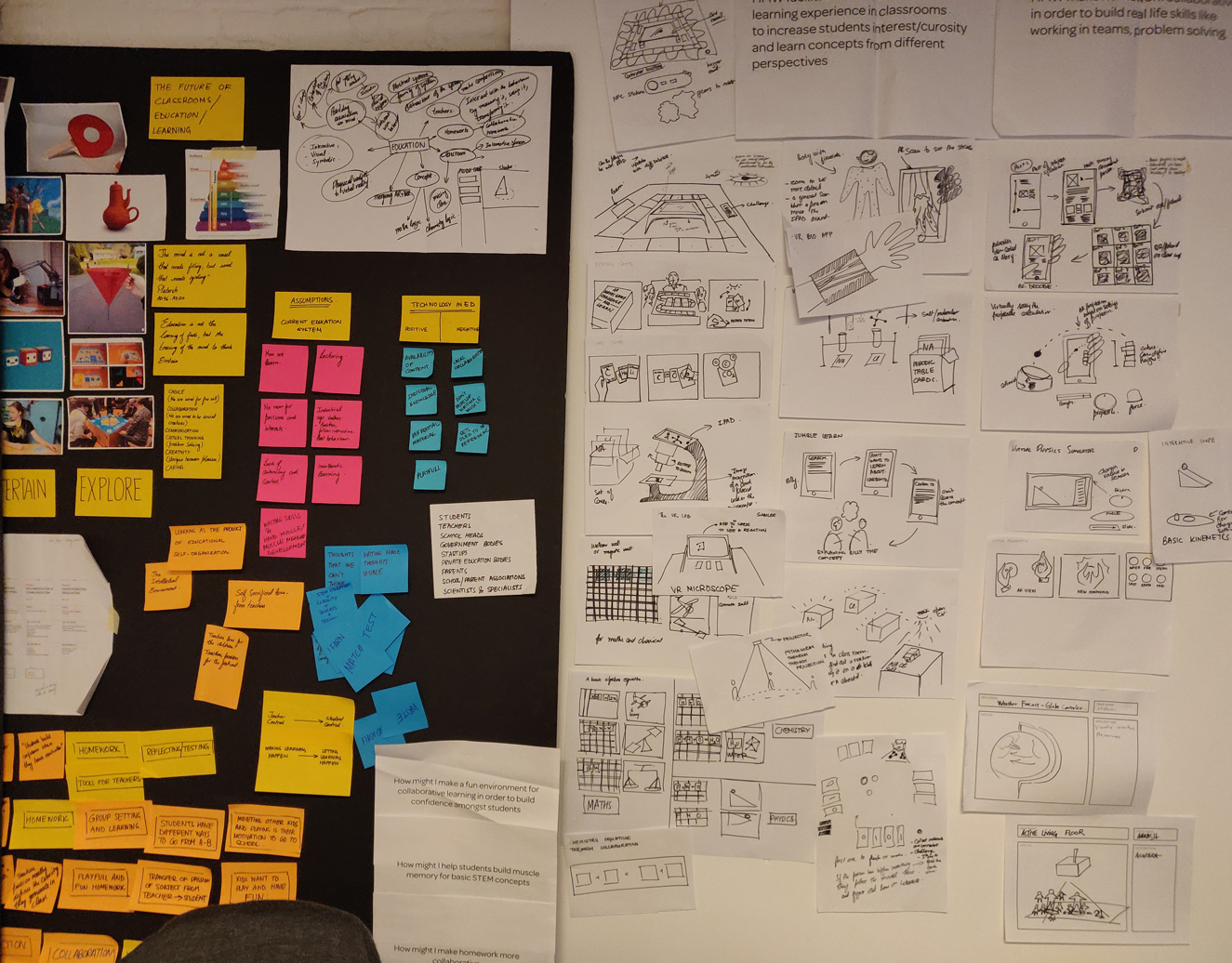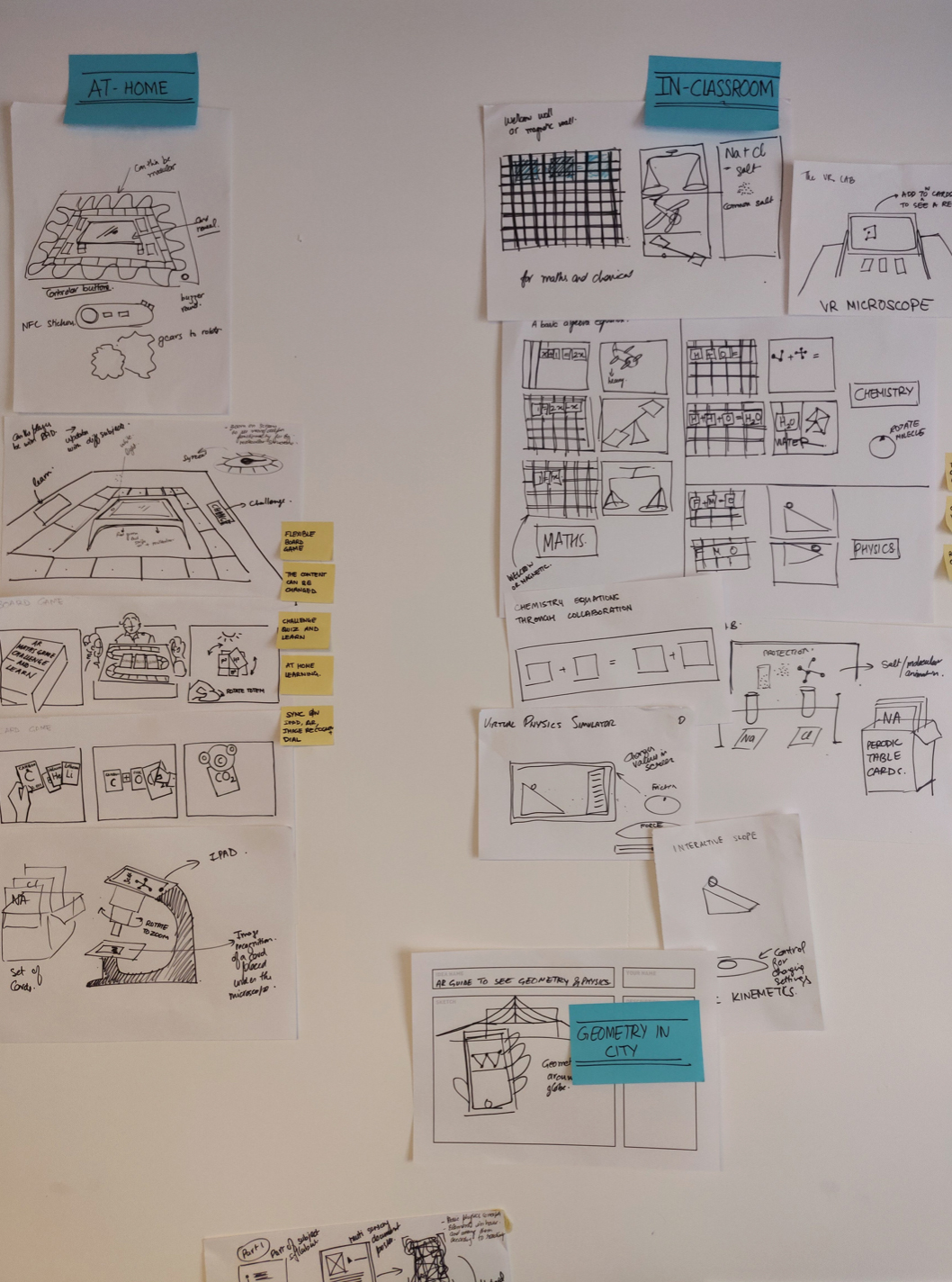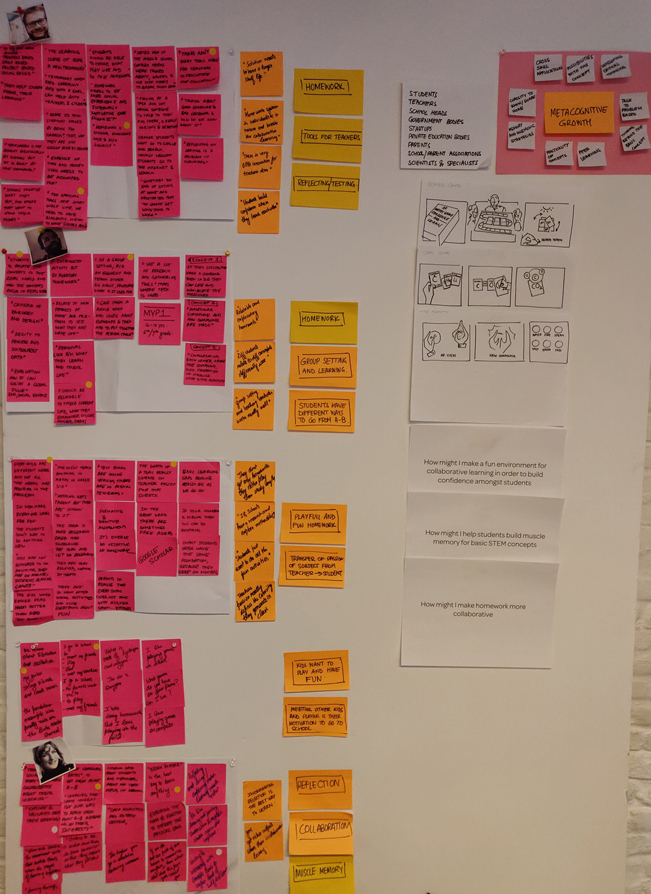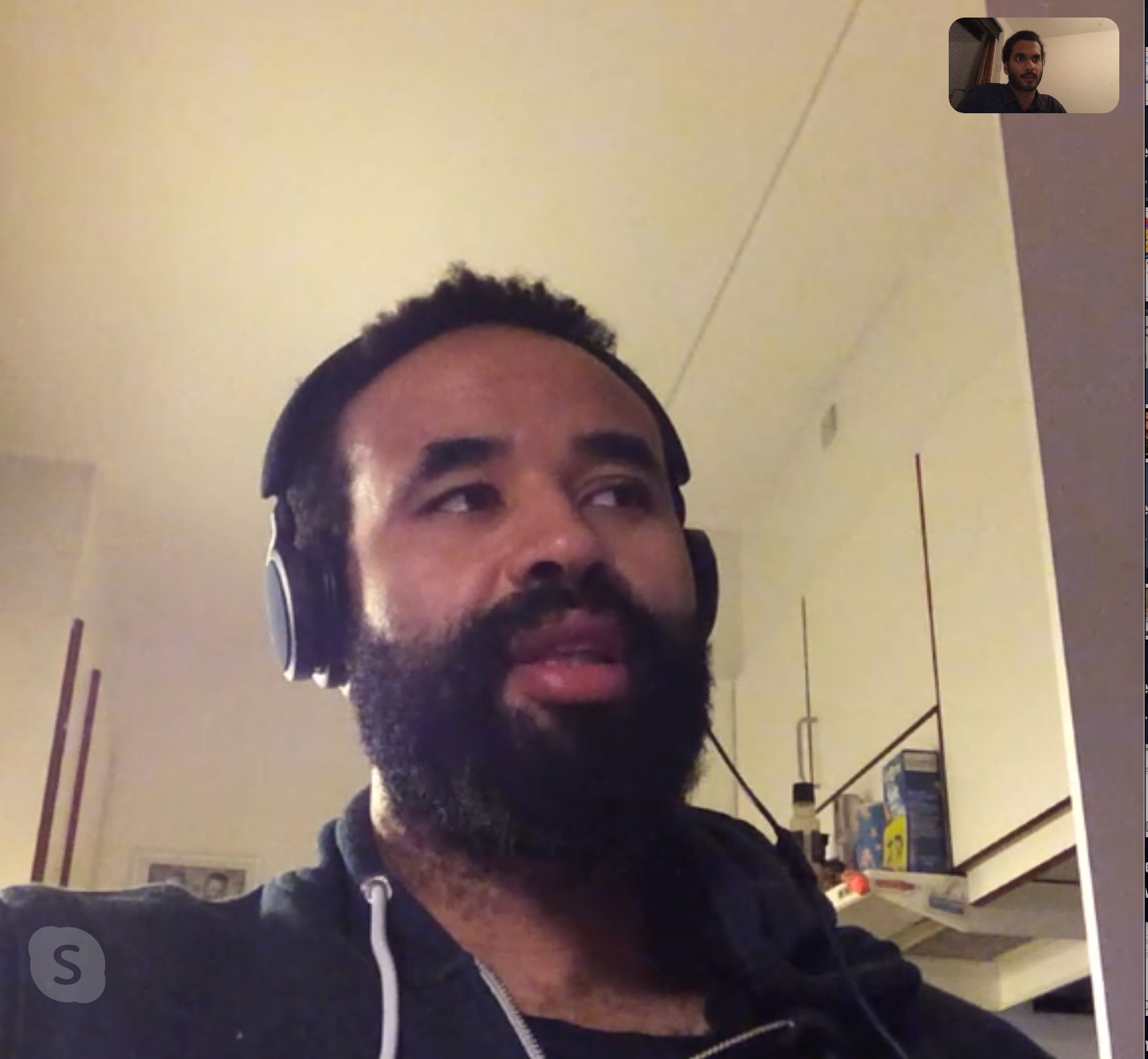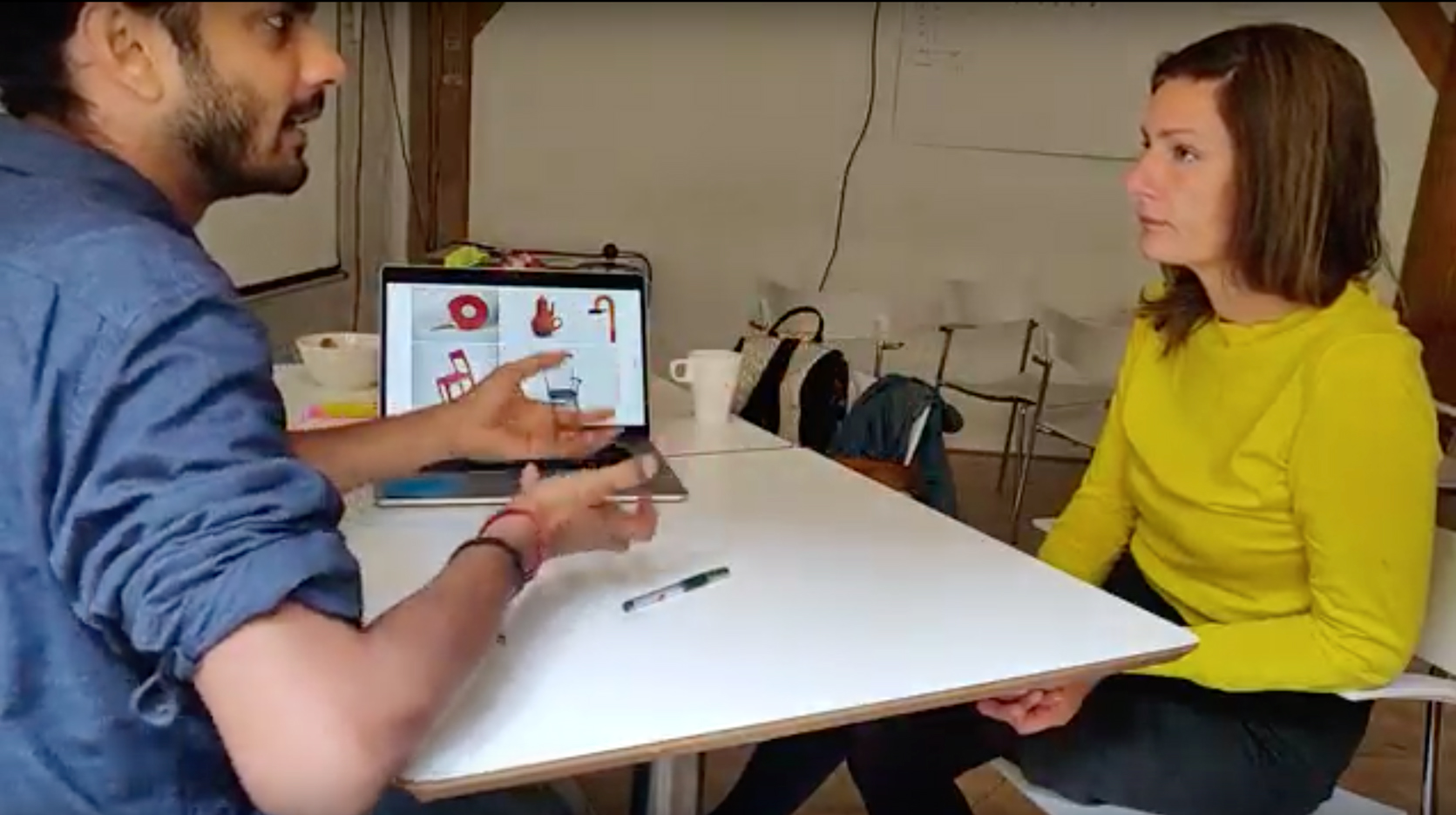In-depth desk research was carried out throughout the project, during which a number of educational videos, podcasts and research papers were studied. Brett Victors essay “Up and down the ladder of abstraction” talks about making the invisible visible. While Sughata Misra in his TED talk, showcases a great experiment of letting learning happen rather than imparting learning. Work of Simone Gertz and the podcast “Shaping the fourth industrial revolution” talk about the exploratory nature of learning and meta-cognitive growth. The research paper from LEGO foundation on “learning through play” gave insights about teaching uncertainty to students, and how the current academic curriculum teaches only certain and absolute content.
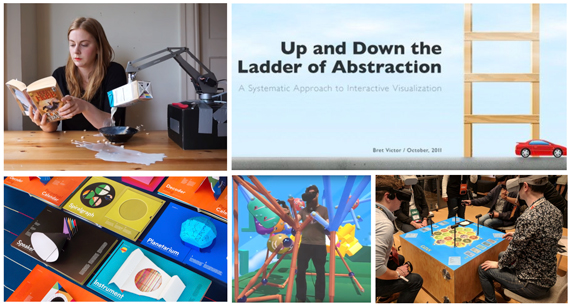
Inputs from a developmental psychologist
The first person who I spoke to was a developmental psychologist to understand the why and how’s of the current system, the crux was that the current middle school education system is designed for “One size fits all”, a set way to learn and teach v/s facilitating or letting learning happen.
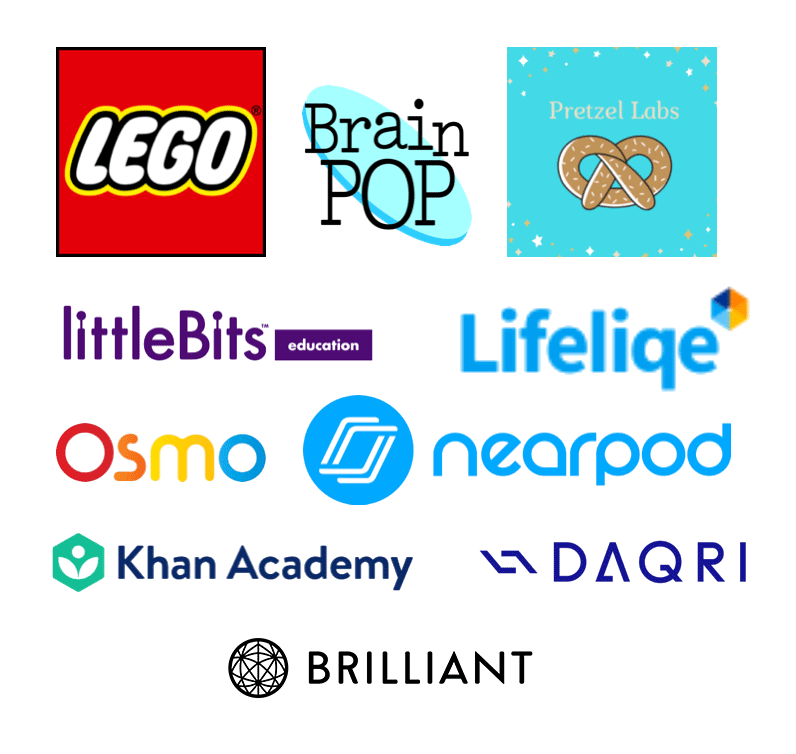
Market research
Researching existing market products revealed that a lot of solutions exist in explain and entertain territory, but there was a clear market gap in explore territory with middle school content. The key buckets found during the research were.
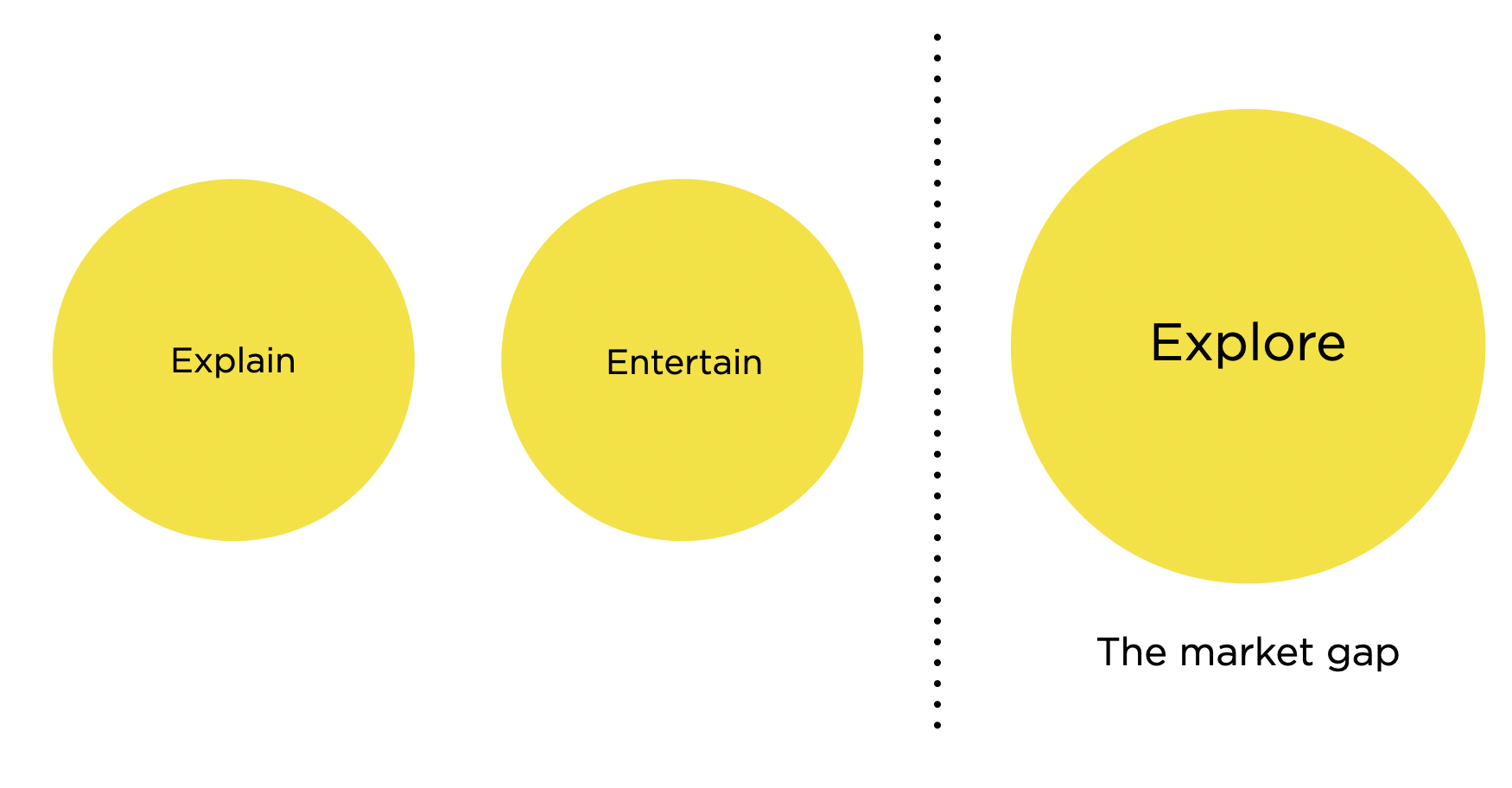
In my next step I spoke to a few middle school students in Copenhagen. I asked them to draw a flow chart of their daily activities. Based on that I developed a character sketch, where I started understanding the students motivations/demotivations to do a certain activity through the day. Below is the character sketch of a day in life of this middle school student.
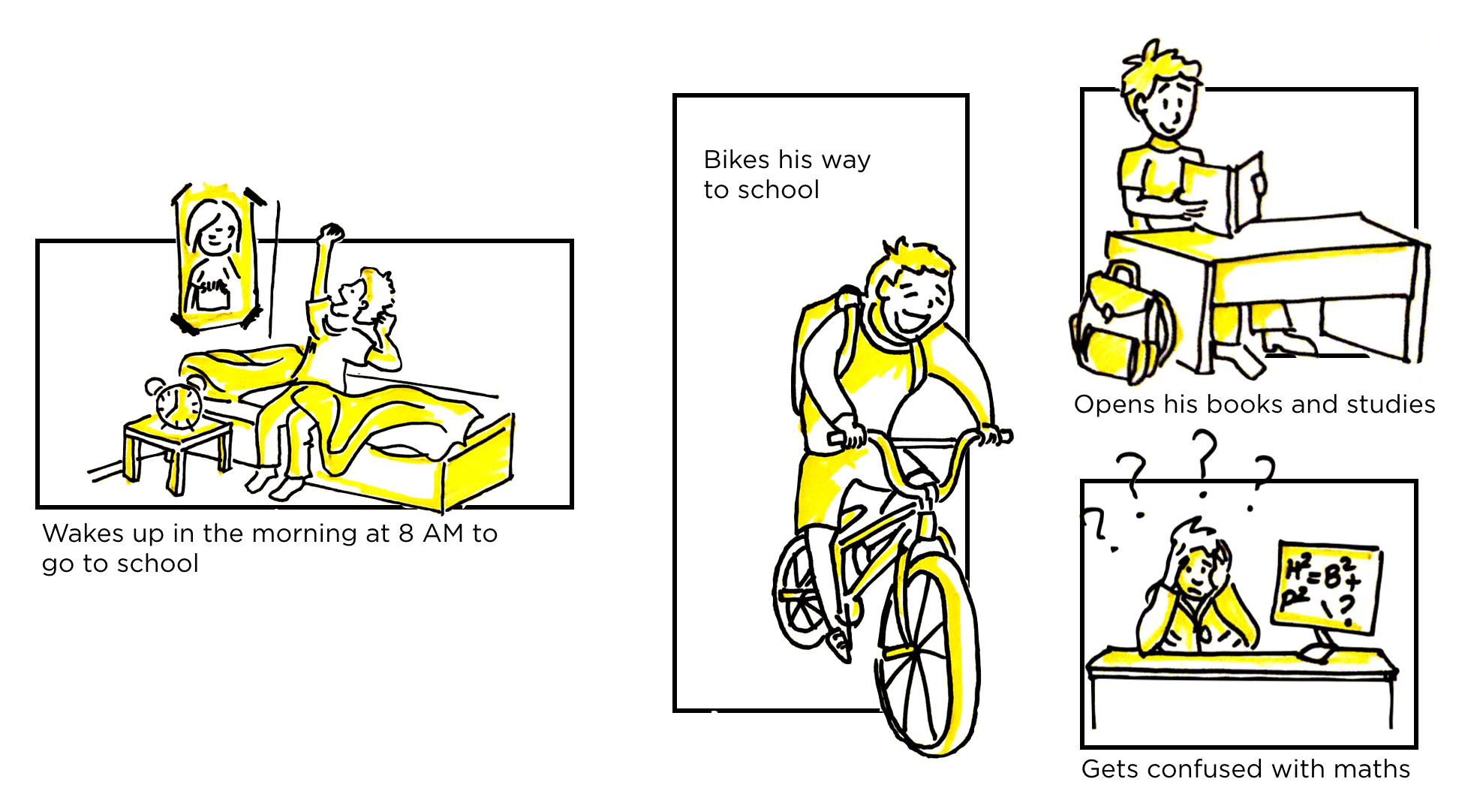
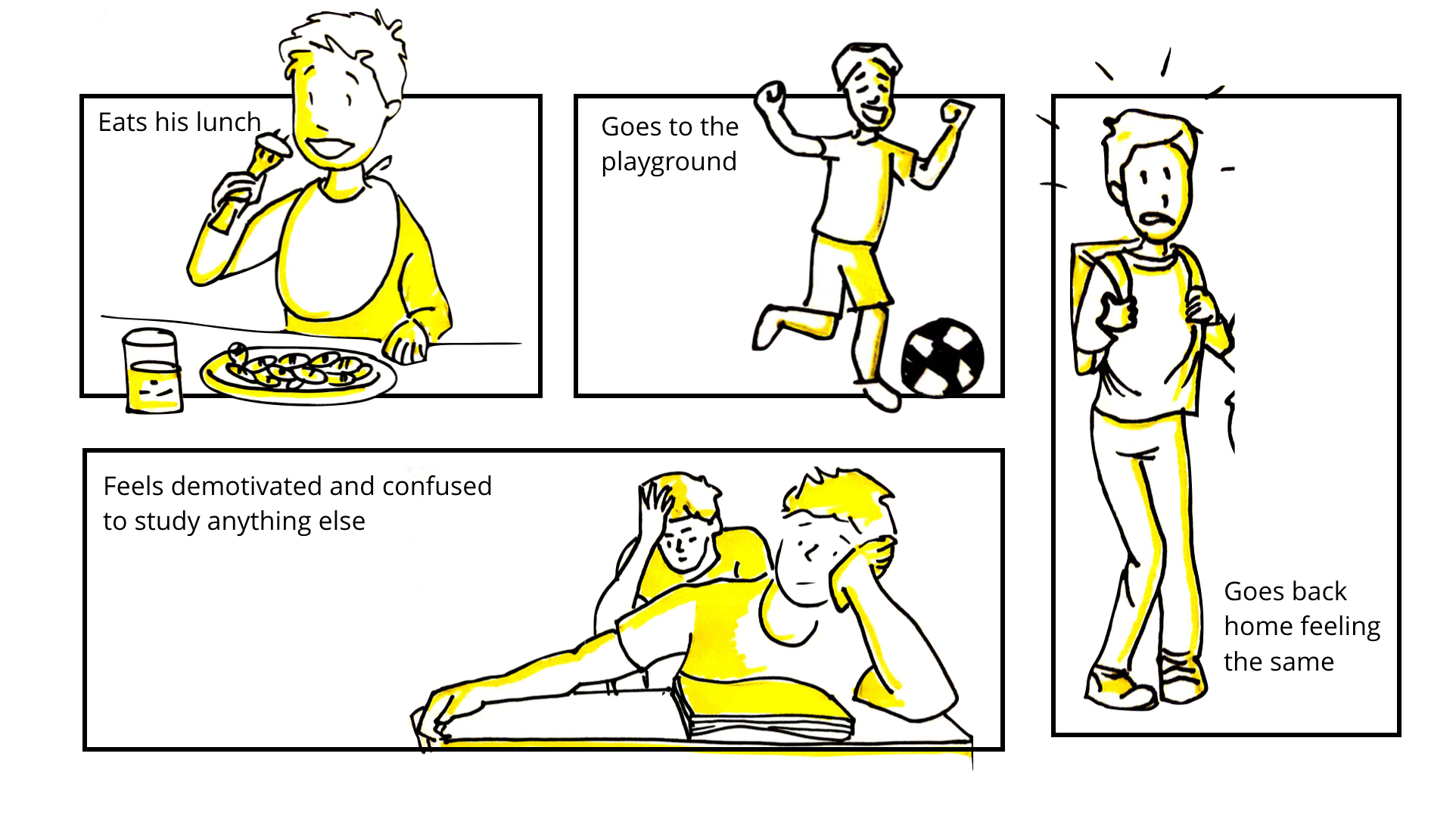
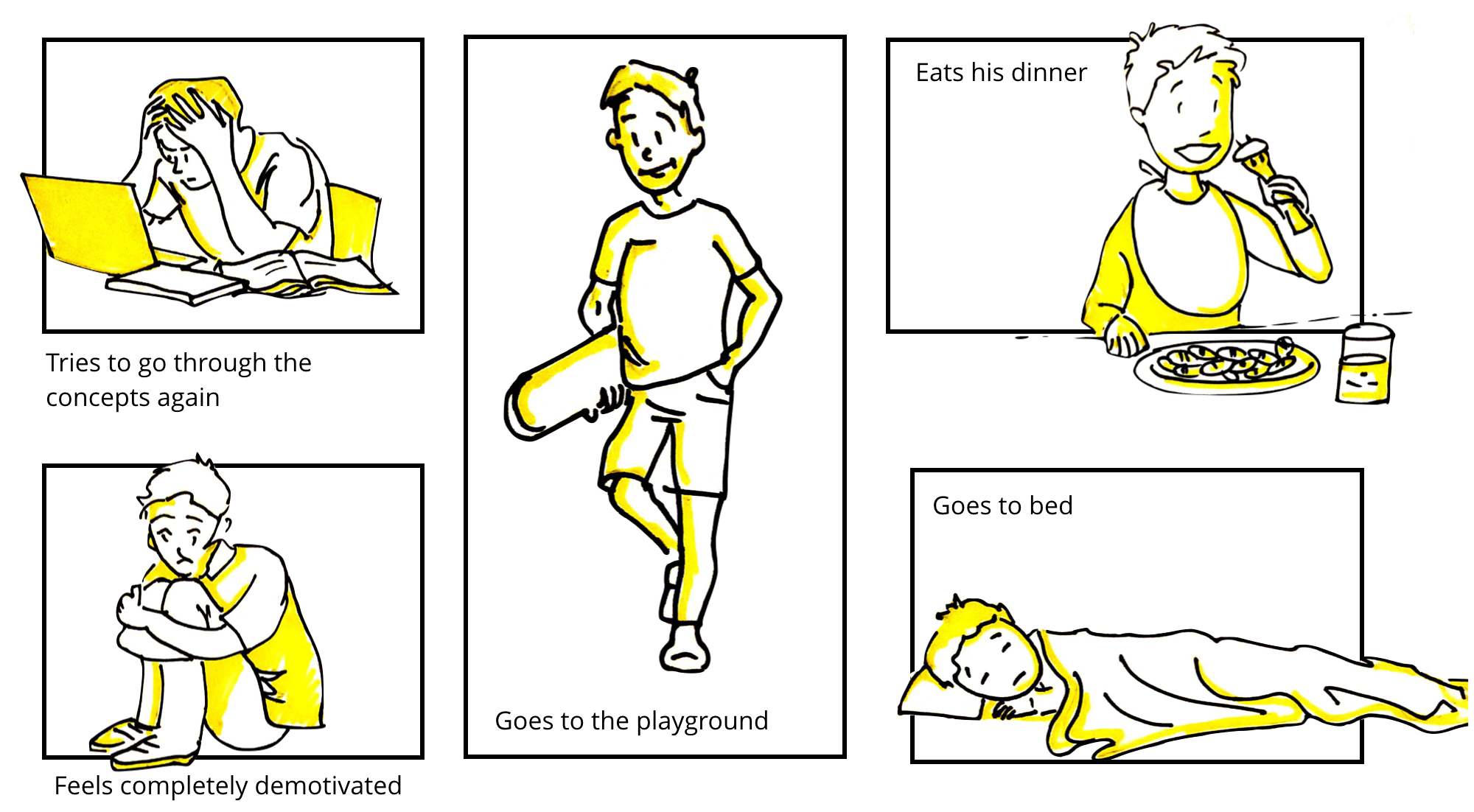
How does this middle school student feel
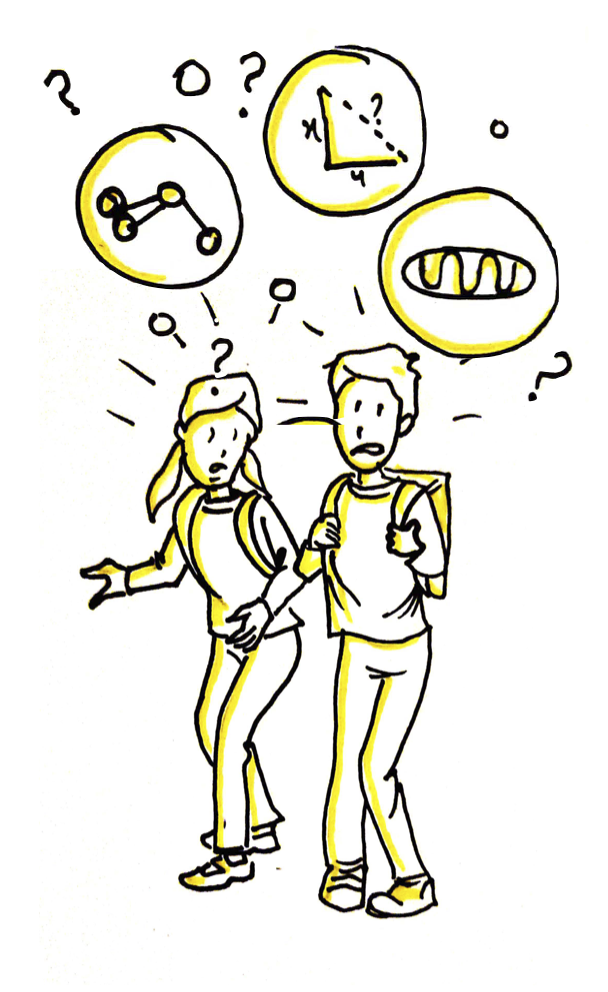
Confused
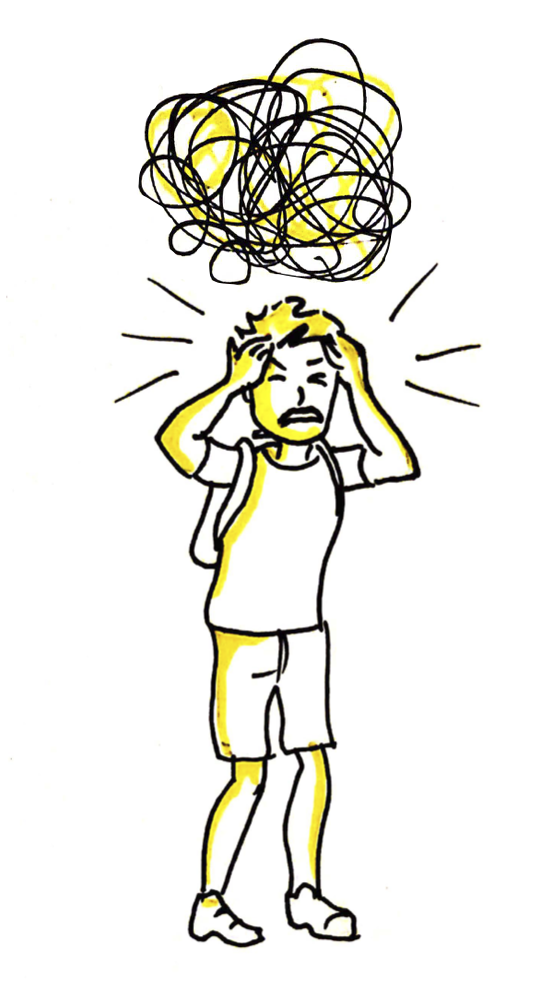
Irritated
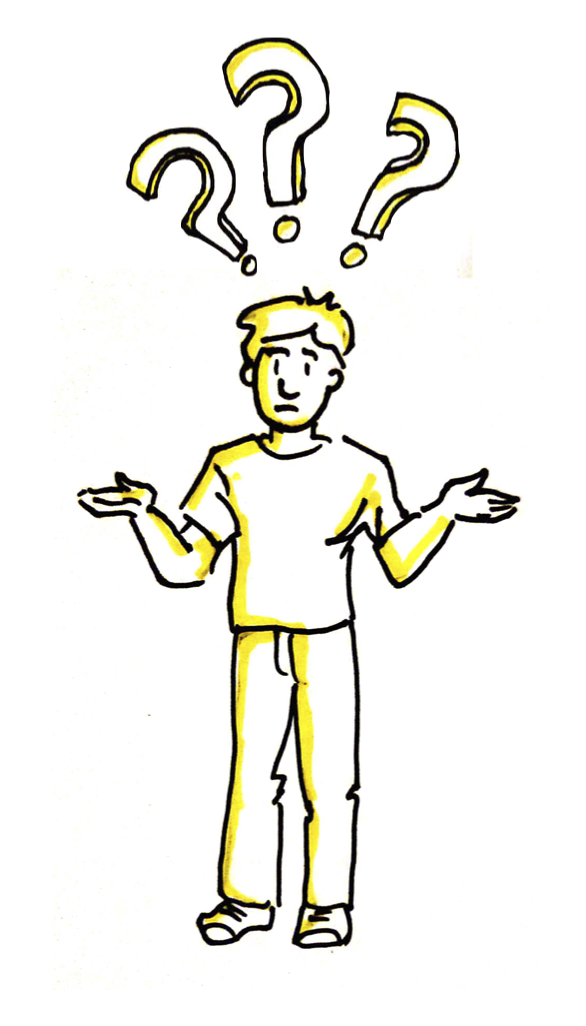
Does not care
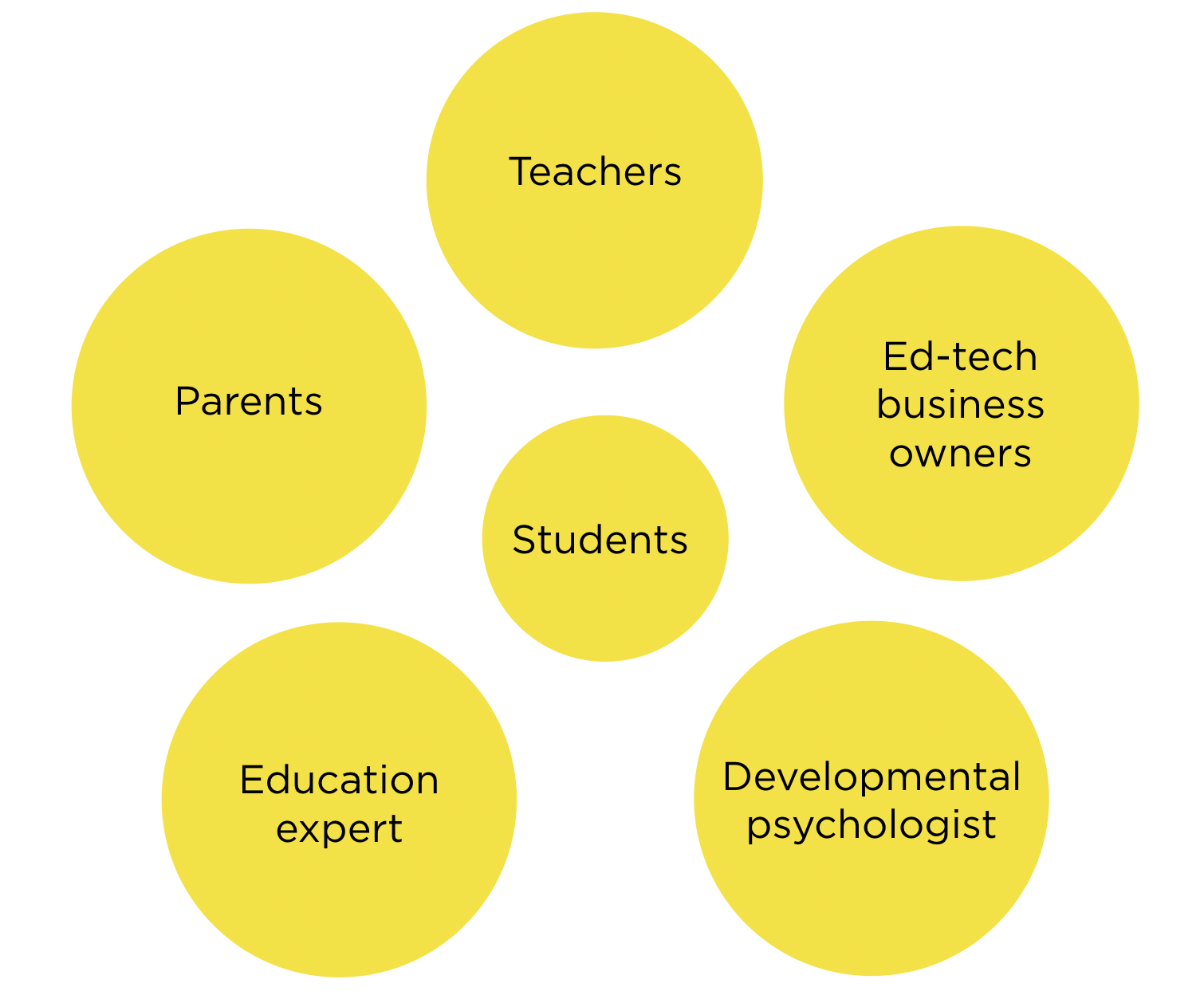
Research interviews
I started scheduling interviews with various stakeholders in the middle school education space. I conducted a few Skype interviews, Sent out questionnaires and met a few teachers, students and parents personally to understand the problems in much more depth. I drew a few sacrificial concepts to have more engaging conversations and know their thoughts about home leaning activities, using technology in learning and classroom activities.
Quotes from interviewees
Insights from research & interviews
Explorable explanations
Giving the kids the freedom to explore and develop their own conclusions.
Making the invisible, visible!
Intangible concepts are difficult to imagine in real life.
Collaboration to confidence
Collaboration is key for learning. Learning together builds confidence and gives perspective.
Metacognitive growth
Facilitating metacognitive growth enables inter-contextual application of concepts.
# Concept 1
Actual reality
Exploring and tagging basic STEM concepts in the real world, e.g. Pythagoras theorem, area of a quadrilateral, etc.

# Concept 2
Well grow
Using paper cards to solve equations on a velcro wall. Students see cause & effect projected on the white board using the classroom projector.

# Concept 3
Board game
A board game with a tablet using paper cards to solve a goal. Students put their cards under the tablet to find out the correct combination and reasons why.



